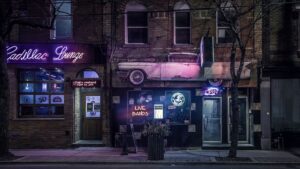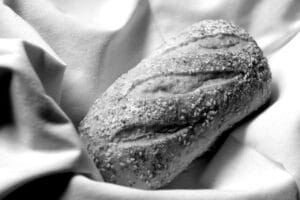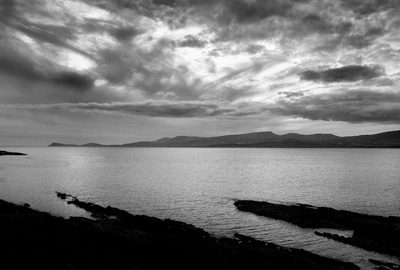Mom was ironing Dad’s uniform for work when I spotted the little girl. It was a typical November day in Ontario, too cold for snow after a sudden onset of winter. I was looking down at the bay from our windows which flanked the kitchen of our apartment. I loved to watch the lake this time of year when the wind did interesting things to the water.
When I saw the little girl fall into the water, I turned to tell my father what had happened. He was standing at the stove, shirtless, smoking a cigarette. He handed my mother his lit cigarette and without a word raced down the hallway. I scrambled off my chair and raced after him.
“Your shirt, Thomas,” my mother yelled, but we were already on our way down the flight of stairs leading to the street. It was only a block to the dock and my dad ran it faster than I could. When he reached it he just kept running along its full length and diving off the end.
Her brother was standing at the edge of the dock, crying. He told me she’d been leaning over to spy the time on the bank clock at the top of the hill. They didn’t want to be late for dinner, he said, or they’d really catch it.
“My father will find her,” I told him. He was a brilliant swimmer, had swam competitively in Wales as a boy, and every summer taught me to do back flips and jackknife dives from this very spot.
My father surfaced again and again in the choppy water, saying nothing, just taking in lungful’s of air before duck-diving again. I kept thinking how bitterly cold the water must have been. All the while, her brother kept yelling out his sister’s name – Mary, Mary – as if upon hearing it she would magically appear.
Suddenly a police squad car drove right onto the dock alongside us, its lights flashing. My dad was treading water by then, shouting up to us breathlessly that he couldn’t find her, that he couldn’t see anything in the murky water.
My dad stayed in the water a long time. By that time a crowd had gathered. Two scuba divers arrived and began lowering themselves into the water with tank strapped to their backs. It had grown dark by then and I knew my dad was worried about being late for work. In those days when a man didn’t show up for work he didn’t get paid. He told the police he had to go and that he wanted me to stay with the girl’s brother. I watched as he ran full tilt back up to the main street, a wet towel around his thin shoulders.
The police had set up floodlights to cover the surface of the water and the dock looked like a gigantic movie set. The only sound for the longest time was the scratching of the police radio and the diver’s equipment occasionally breaking the surface of the water. The girl’s mother and father had arrived and stood motionless at the edge of the dock, saying nothing, as if they were afraid to ask anything, afraid even to hope.
When one of the divers finally brought the girl to the surface, I was standing holding her brother’s hand. He kept saying, “I’m sorry, Mary, I’m sorry, Mary,” quietly, over and over again. After they’d taken her away in an ambulance, I ran home and hid in the stairwell shivering.
My dad came down with double-lung pneumonia about two weeks later. He was so sick the doctor came to see him and I watched as he and my mother wound a bed sheet tightly around his chest. It helped save his life, my mother said. He spent several weeks in the hospital afterwards. My mother got a job at the Tandy leather factory to help out.
When my brother and I visited him, we’d entertain him with stories about school. The illness left my father’s lungs deeply scarred and he coughs all the time now. But I know my dad would do it again, for anyone.
The only time he ever mentioned that day to me again was on my next birthday; even then it was obliquely. I was getting ready to blow out my candles and he bent down and whispered to me that I had my whole life ahead of me.
“Not everyone is that lucky,” he said.
But I knew that already.









